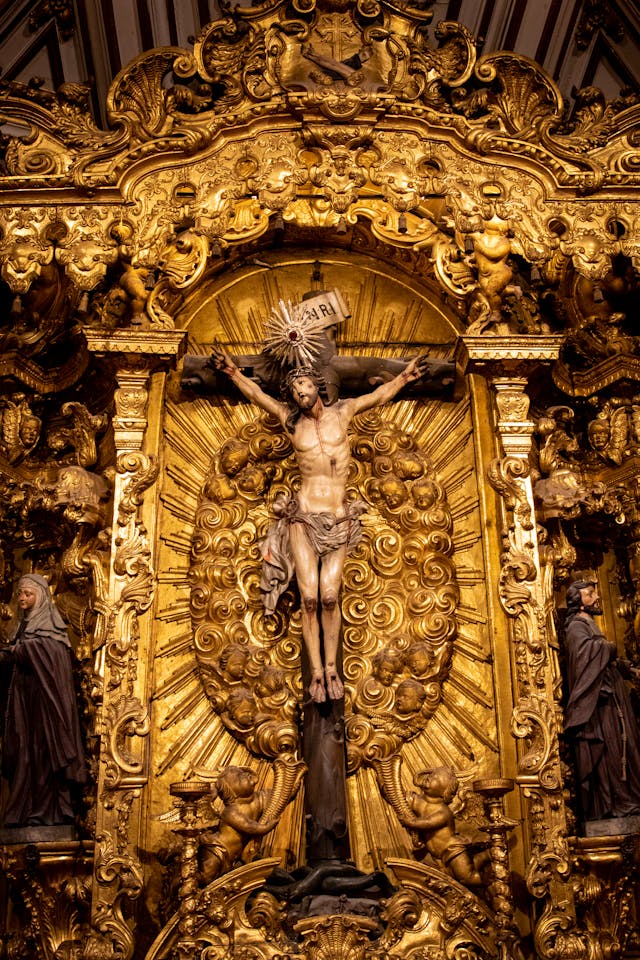
The Mystery of the Bible’s Writings
For centuries, the Holy Scriptures have amazed believers and scholars alike. Offering guidance, solace, and timeless wisdom. But who were the mysterious authors behind these sacred texts? In this fascinating exploration, we delve into the depths of history to uncover the identity of the secret scribes who penned the Holy Scriptures.
Throughout the ages, religious texts like the Bible, the Quran, and the Torah have shaped the beliefs and practices of billions of people worldwide. The question of authorship has long been debated, with theories ranging from divine inspiration to multiple contributors. Now, armed with historical records, archaeological discoveries, and linguistic analysis, we strive to shed light on the enigmatic figures who imparted their wisdom to these revered texts.
Join us on a journey through time as we examine the evidence, unraveling ancient secrets and unmasking the voices that continue to resonate through the centuries. From the scribes of ancient civilizations to the prophets and apostles of religious traditions, we seek to uncover the truth behind the words that have guided humanity for generations.
Prepare to be intrigued by this exploration into the hidden identities of the authors who shaped our spiritual landscape.

The mysterious nature of the authors
When it comes to the Holy Scriptures, the authors have always been surrounded by an air of mystery. Unlike modern-day books with clearly defined authors, the ancient texts were often passed down through generations, making it difficult to determine who initially wrote them. The absence of explicit authorship in many cases adds to the intrigue, leaving scholars to piece together clues from various sources.
The challenges of identifying the authors
The passage of time presents a significant challenge in identifying the authors of the Holy Scriptures. With some texts dating back thousands of years, the historical record becomes fragmented, making it hard to find definitive answers. Additionally, the compositions of these texts often occurred in oral traditions, passed down through generations before being transcribed, further obscuring the original authors.
Archaeological evidence can provide valuable insights, but it too has its limitations. Fragments of ancient manuscripts can only reveal so much, and they rarely come with a clear indication of authorship. Therefore, scholars must rely on a combination of textual analysis, historical context, and cross-referencing with other ancient texts to paint a more complete picture.
Ancient theories on authorship
Throughout history, various theories have emerged regarding the authorship of the Holy Scriptures. In some cases, religious traditions ascribe divine inspiration to the texts, believing that the authors were guided by a higher power. This perspective emphasizes the spiritual nature of the scriptures, emphasizing their timeless wisdom rather than the specific identities of the authors.
Other theories suggest multiple authors or contributors to the texts, particularly in cases where different writing styles or perspectives are evident. These theories propose that the scriptures were a collaborative effort, with various individuals contributing their insights and experiences.
Modern scholarly perspectives on authorship
Controversies and debates surrounding authorship
The question of authorship is not without controversy. As scholars present their findings and theories, debates often arise, with differing opinions and interpretations leading to spirited discussions. Some religious communities strongly adhere to traditional beliefs about authorship, viewing any alternative theories as a challenge to their faith.
However, it is essential to approach these debates with an open mind, recognizing that the quest for authorship is a scholarly endeavor seeking to deepen our understanding of the texts. Exploring alternative theories can contribute to a more nuanced understanding of the scriptures, enriching our interpretation and appreciation of their timeless messages.
Unveiling the possible authors of specific scriptures
While definitive answers may still elude us, scholars have made significant progress in unveiling the possible authors of specific scriptures. In the case of the Bible, for example, historical records and textual analysis have provided insights into the identities of some of the writers, such as the apostle Paul, the evangelist Luke, and the prophet Isaiah.
Similarly, for the Quran, Islamic tradition attributes the authorship to the Prophet Muhammad, who received divine revelations for many years. The Torah, on the other hand, is traditionally believed to be written by Moses, although some scholars suggest that it may have had multiple contributors over time.
The role of divine inspiration in the scriptures
While the question of authorship is essential, it is equally crucial to understand the role of divine inspiration in the scriptures. Many religious traditions believe that the authors were divinely guided, receiving insights and revelations from a higher power. This perspective emphasizes the spiritual significance of the texts, regardless of the specific individuals who put pen to paper.
Divine inspiration provides a framework for understanding the sacred nature of the scriptures, highlighting their timeless relevance and universal wisdom. It invites believers to look beyond the human authors and focus on the messages and teachings contained within the texts, which are believed to transcend time and culture.
The significance of understanding authorship in interpreting the scriptures
While authorship may not be the sole determinant of the scriptures’ meaning and significance, understanding the context and background of the authors can provide valuable insights for interpretation. The historical, cultural, and personal experiences of the authors shape the messages they convey, adding depth and nuance to our understanding.
By exploring the possible authors, we can gain a better understanding of the motivations, perspectives, and intentions behind the texts. This understanding allows us to approach the scriptures with a more informed mindset, appreciating the complexities and richness they offer.
The ongoing quest to uncover the secret scribes
In conclusion, the mystery surrounding the authors of the Holy Scriptures continues to intrigue and inspire. While we may never uncover definitive answers, the scholarly quest to identify the secret scribes enhances our understanding of these sacred texts. Through historical records, archaeological discoveries, and linguistic analysis, we can catch glimpses of the individuals who played a part in shaping our spiritual landscape.
As we delve deeper into the ancient past, let us remember that the search for authorship is not meant to undermine faith but rather to explore the human aspects behind these divine texts. By unraveling the stories of the secret scribes, we gain a broader perspective on the wisdom and teachings that have guided humanity for generations. Let us embrace this ongoing journey, seeking knowledge and enlightenment in our exploration of the Holy Scriptures and the enigmatic authors who penned them.














































































































